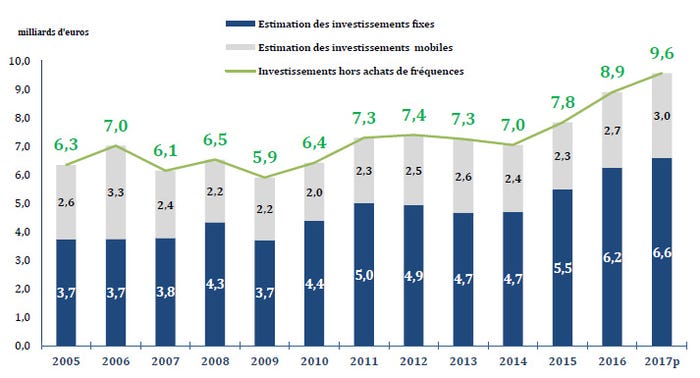IBM investment shows Macron’s tech mission is workingIBM investment shows Macron’s tech mission is working
French President Emmanuel Macron has a mission, and his mission is to take France to the top of the technology rankings in Europe. With IBM adding an extra 1800 jobs and a training centre in the country, he might well be succeeding.
May 23, 2018

French President Emmanuel Macron has a mission, and his mission is to take France to the top of the technology rankings in Europe. With IBM adding an extra 1800 jobs and a training centre in the country, he might well be succeeding.
Last year, Macron, a pro-business former investment banker, set up a fund holding $10 billion in state assets intended to be invested in breakthrough technologies, offered flat 30% tax rate on all capital income and also unemployment insurance for people who leave a job to go start a company. The aim was to re-establish France as a home for industry and create an environment which encouraged the growth of start-ups. It was a bold move, but IBM’s announcement is somewhat of a vindication.
Over the next two years, IBM will make a series of investments to create 1800 jobs, 400 of which will be focused on artificial intelligence, coupled with a major expansion ‘new collar’ skills training programme. The investment will focus on technologies such as AI, blockchain, cloud computing and IoT.
“President Macron is making a big bet, and a smart one, that AI is going to transform every job, every profession and every industry,” said IBM CEO Ginni Rometty. “At IBM, we share this belief and see evidence of it every day with Watson driving exponential impact here in France and around the world. That is why we are bringing 1,800 new jobs to France to meet growing demand for AI from our clients.”
The move demonstrates Macron is making the right noises, and must be somewhat of a slap to UK politicians who have been working to make the UK a global centre for artificial intelligence and other breakthrough technologies. London could still be viewed as the centre for start-ups in Europe, there is abundant access to financing in the city after all, but perhaps this is an indication of a loosening strangle hold. Maybe it is a consequence of Brexit, with IBM preferring a HQ within the borders of the EU.
We’re not too sure there is too much weight behind the Brexit argument, but the Macron administration has been doing something the UK hasn’t. Turning daring promises and forthright objectives into actions.
While the UK is still searching for the catalyst to increase FTTH penetration, while also attempting to set the scene for 5G, French infrastructure is getting the investment the digital economy needs. Data released by Arcep demonstrated there is more than simply talk about embracing the digital economy. €9.6 billion was spent over the last 12 months on communications infrastructure, €6.6 billion of which was on the fixed assets. FTTH penetration is still low in comparison to other European nations, but there is certainly gathering momentum.

Looking at the regulatory landscape, the government is trying to make it as easy as possible to invest, including creating mechanisms to encourage pooled investment strategies between the operators, and frameworks to manage interoperability so that users perceive them as one. This might be a bit of a pain for the operators in the short-term, but it is much more attractive for consumers and enterprise customers in the long-run.
In short, the French government is creating a landscape which will be deemed much more suitable for the digital economy, but it doesn’t just stop at infrastructure. Education is another area where France is being proactive and forward-looking. A good example of this is also included in the IBM announcement.
IBM is partnering with the French government to roll-out its P-TECH (Pathways to Technology Early College High School) education model. P-TECH was started in 2011 to provide young people the skills and credentials required for 21st century jobs. By September, P-TECH will be in 120 schools in four countries and is on track to prepare more than 75,000 students for ‘new collar’ jobs.
For any company to consider notable investments or expansion in a country there has to be a long-term workforce. To ascertain whether this is going to be the case, looking at education standards is critical and this is another area where the UK falls down. The focus in the UK is too concentrated on traditional subjects, which while very important, are not providing the right skills for the burgeoning technology industry. Countries which incorporate new technology skills, or perhaps introduce writing code as a language alternative to the likes of Spanish or French, will start to look attractive to these multinational corporations.
France might not be the centre of the European technology space as it stands, but Macron is making the right moves to create the perfect environment. Pro-business regulations, actively encouraging investment in the infrastructure which will act as the foundations of the digital economy and an education system which builds skills for the future. The UK could learn a thing or two from France.
About the Author
You May Also Like










.png?width=300&auto=webp&quality=80&disable=upscale)


_1.jpg?width=300&auto=webp&quality=80&disable=upscale)